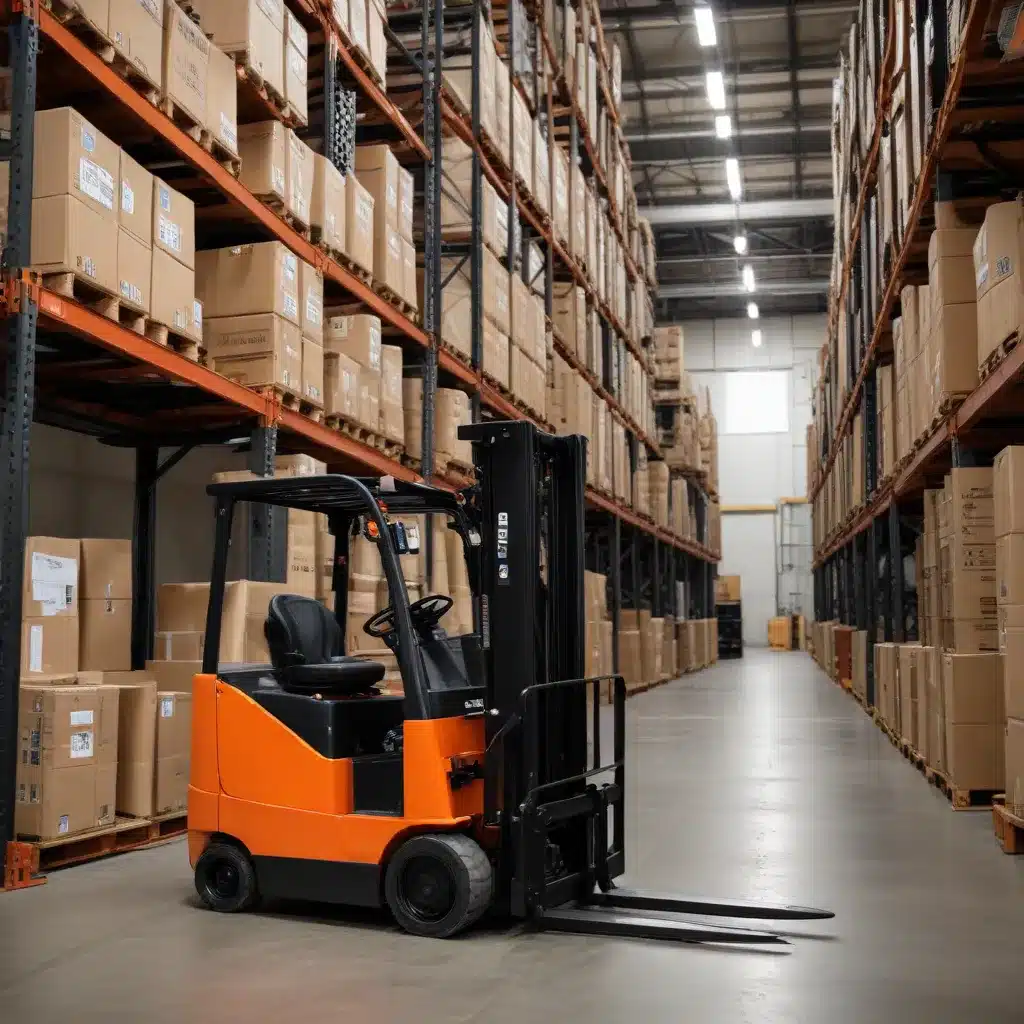
The Evolving Landscape of Forklift Power Sources
Over the past century, the internal combustion engine has dominated the global material handling market, powering forklifts since their inception. However, the tides are turning as electric forklifts fueled by lithium batteries emerge as the new standard in the industry. This shift is driven by growing environmental consciousness, the need for operational efficiency, and technological advancements in battery technology.
As governments encourage greener, more sustainable practices, industries like material handling are increasingly focused on finding eco-friendly power solutions to minimize their carbon footprint. Additionally, the overall growth of industries, the expansion of warehouses and distribution centers, and the rise of warehousing and logistics automation have led to a heightened demand for operation efficiency, safety, and reduced total cost of ownership (TCO).
“The forklift battery market was worth US$ 2055 million in 2023 and is expected to reach US$ 2825.9 million by 2031 witnessing a (Compound Annual Growth Rate) CAGR of 4.6% during 2024 to 2031.” – Industry research
The Rise of Lithium-Ion Forklift Batteries
One of the most significant shifts in recent years is the dominance of lithium-ion batteries as the power source for forklift trucks, largely redefining the battery standard in the material handling industry. Compared to traditional lead-acid batteries, lithium-powered solutions have emerged as the superior choice for several compelling reasons:
-
Higher Energy Density: Lithium-ion batteries can store more energy without increasing the size, making lithium-powered forklifts more agile in operations requiring tight maneuvers.
-
Fast and Opportunity Charging: Lithium-ion batteries do not suffer from the memory effect and can be charged during breaks and between shifts, increasing equipment availability and maximizing uptime for industries operating multiple shifts per day.
-
Stable Performance: Lithium-ion batteries maintain a stable voltage throughout the discharge cycle, ensuring consistent performance without sudden power sag.
-
No Dangerous Substances: Lithium-ion batteries are safe and environmentally friendly, eliminating the need for specialized battery rooms, HVAC, and ventilation equipment.
-
Virtually Zero Maintenance: Lithium-ion batteries require no regular water top-ups or daily checks, reducing battery swapping needs, maintenance frequency, and labor costs.
-
Longer Service Life: With a longer cycle life, a single lithium-ion battery can power a forklift for many years, providing reliable and consistent performance.
-
Enhanced Safety: Lithium-ion batteries are equipped with intelligent Battery Management Systems (BMS) that support real-time monitoring and multiple safety protections.
Technological Advancements in Lithium-Ion Forklift Batteries
As the demand for lithium-ion forklift batteries surges, manufacturers are investing heavily in research and development to enhance their performance and safety, while also reducing the total cost of ownership for businesses.
Innovations in Battery Management Systems (BMS)
Forklift battery manufacturers are developing more sophisticated BMS that provide real-time data on battery health and performance. These advanced systems can accurately predict maintenance requirements, minimize downtime, and ultimately reduce operational costs.
Advancements in Charging Technologies
The introduction of fast-charging technologies allows forklift batteries to be quickly recharged during breaks or shift changes, revolutionizing the material handling industry and greatly minimizing downtime, while increasing productivity.
Specialized Battery Designs for Extreme Environments
To address the unique challenges of operating forklifts in cold storage facilities, some manufacturers, such as ROYPOW, have developed specialized lithium-ion battery solutions with internal and external designs that protect against water, condensation, and maintain optimal temperatures for stable discharge, ensuring reliable performance and safety in these demanding environments.
Collaborations and Partnerships
As the material handling industry continues to evolve, partnerships and collaborations between battery manufacturers, forklift manufacturers, and charging infrastructure providers are becoming increasingly common. By pooling expertise and resources, these collaborations enable faster innovation and the development of comprehensive solutions that meet the ever-changing needs of the market.
The Future of Forklift Battery Technology
The future of the forklift battery market is promising, with lithium-ion technology leading the way. As businesses seek to optimize their operations, reduce costs, and enhance sustainability, the adoption of these advanced battery solutions is expected to accelerate.
Advancements in Battery Chemistry and Designs
Ongoing research into alternative materials and emerging battery technologies will likely bring greater improvements in energy density, charging speeds, safety, and overall performance. Manufacturers are constantly exploring next-generation battery options, such as faster charging rates, high energy density alternatives, and further advancements in BMS, to redefine the standards in the material handling industry.
Automation and Intelligent Forklift Systems
As the automation of forklift equipment becomes a growing trend in modern warehousing, the development of lithium-ion battery systems for automated forklifts will become increasingly critical. By leveraging the benefits of lithium-ion technology, these intelligent forklift systems can enhance productivity, efficiency, and safety in material handling operations.
Increased Sustainability and Environmental Consciousness
Driven by the global push for sustainable practices and reduced carbon footprints, the material handling industry’s shift towards lithium-ion forklift batteries will play a crucial role in promoting environmental consciousness and driving towards a greener future.
Conclusion: Embracing the Lithium-Ion Revolution
While the initial investment in lithium-ion forklift batteries may be higher than traditional lead-acid solutions, the long-term benefits in terms of increased efficiency, enhanced safety, and lower total cost of ownership make them a compelling choice for businesses in the material handling industry.
By embracing the technological advancements in lithium-ion battery technology, forklift operators and fleet managers can position their businesses at the forefront of the evolving material handling landscape, reaping the rewards of increased productivity, reduced environmental impact, and improved profitability.
As the Forklift Reviews blog, we are excited to witness the ongoing transformation of the material handling industry and the pivotal role that lithium-ion forklift batteries are playing in shaping its future.

